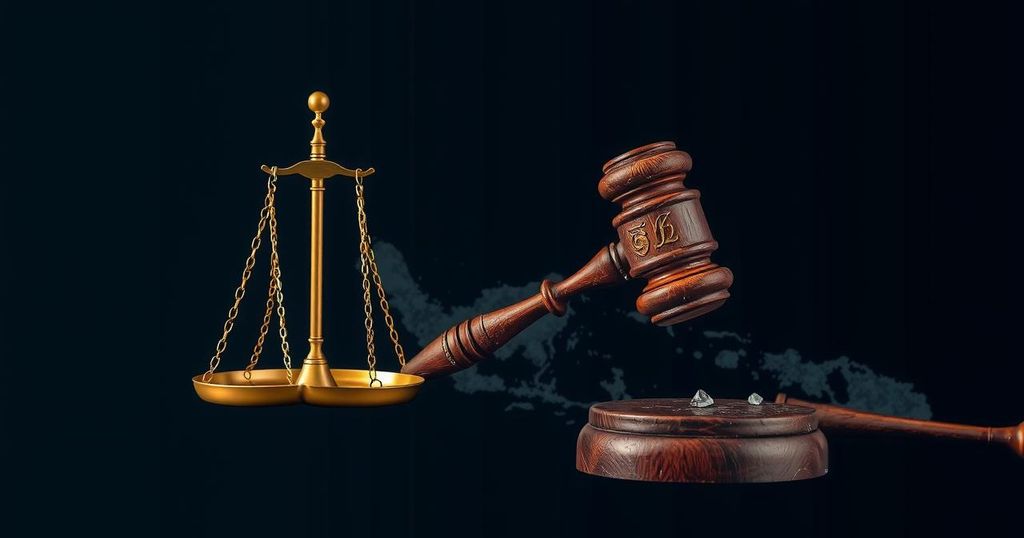This article explores the complexities of corporate criminal liability regarding gross human rights violations, highlighting varying international approaches, significant cases, and Indonesia’s legal landscape as it attempts to address this pressing issue. It emphasizes the importance of assessing corporate complicity and integration of international legal standards into national law.
The discourse surrounding corporate criminal liability continues to evoke significant intrigue and controversy, particularly regarding accountability for gross human rights violations. Various states adopt differing methodologies; notably, while some support the ‘identification approach’ for corporate liability, others advocate for the ‘organizational approach’. Nevertheless, the ambiguity persists in holding corporations accountable for serious human rights abuses, as such violations are typically associated with individual actors. For instance, the Rome Statute of the International Criminal Court primarily focuses on individual culpability despite the potential for corporate participation in committing such crimes. Many corporations have allegedly been involved in systematic abuses while primarily motivated by profit generation. The rise of multinational corporations has facilitated their operations across borders, often through partnerships with foreign entities or governmental bodies. Reports indicate that companies have unscrupulously supported governments or militant groups to secure operational safety, resulting in grave human rights abuses. The International Commission of Jurists highlighted instances whereby corporations provided necessary resources to facilitate abuses by rogue states or armed groups, which subsequently led to attacks on the civilian population. The complicity of corporations has been illustrated through various high-profile cases. Notably, Lundin Energy faces allegations of complicity in war crimes in Sudan due to an agreement with the Sudanese government, which required military protection in a conflict zone that ultimately enabled human rights abuses. Similarly, involvement in the Israel-Palestine conflict has seen entities like Lima Holding BV confronted with accusations of facilitating war crimes through provision of operational support to military efforts against Palestinian civilians. In Indonesia, the nexus between corporate activity and human rights violations has led to scrutiny. ExxonMobil’s history in Indonesia presents an example, especially regarding its hiring practices that resulted in human rights abuses committed by the military. Furthermore, concerns are rising about state-owned enterprises that allegedly supplied arms to Myanmar amidst reports of genocide against its populace. These situations highlight the pressing need to clarify the legal frameworks for prosecuting corporations in cases of human rights violations. Corporate involvement in human rights abuses frequently entails complicity, yet there are broader implications to consider. The theory of corporate culture allows for establishing accountability based not just on direct actions, but also on the culture within corporations that may tolerate or enable criminal acts. This theory, along with the concepts of aiding and abetting, suggests that corporations can bear responsibility for fostering an environment that leads to violations of rights. The recent amendments in Indonesia’s Criminal Code, particularly Law No. 1 of 2023, provide a pertinent context for exploring corporate criminal liability. The reformed Code integrates elements indicative of recognizing corporate responsibility, particularly amidst updated provisions concerning genocide and crimes against humanity. Critical questions persist regarding whether these legal instruments can effectively hold corporations accountable for gross human rights violations, necessitating thorough examination of their applications. The emergence of corporations in international human rights violations serves as an urgent call for Indonesia to modernize its legal frameworks. It is imperative that new regulations evolve to address both complicity and the deeply rooted corporate cultures that allow these violations to continue unabated. This research endeavors to analyze these legal implications, scrutinizing international standards surrounding aiding and abetting alongside the corporate culture theory, ultimately evaluating their integration within the revised Indonesian Criminal Code.
The issue of corporate criminal liability is increasingly pertinent as global businesses expand their reach and influence, particularly in regions with unstable political situations. Outdated legal frameworks may fail to adequately address the ways that corporations may contribute to grave violations of human rights, which often result in catastrophic societal impacts. Therefore, robust analysis of how laws can evolve to hold corporations accountable is crucial for legal practitioners, policymakers, and human rights advocates alike.
In summary, the legal complexities surrounding corporate criminal liability for human rights violations necessitate a comprehensive understanding of both national and international frameworks. The Indonesian legal system has taken significant steps to adapt to these issues, yet further inquiry is essential to ensure that corporations can be held accountable for their actions. By analyzing international standards and Indonesia’s revised Criminal Code, there is potential for creating a more effective legal response to corporate complicity in gross human rights violations.
Original Source: unair.ac.id






